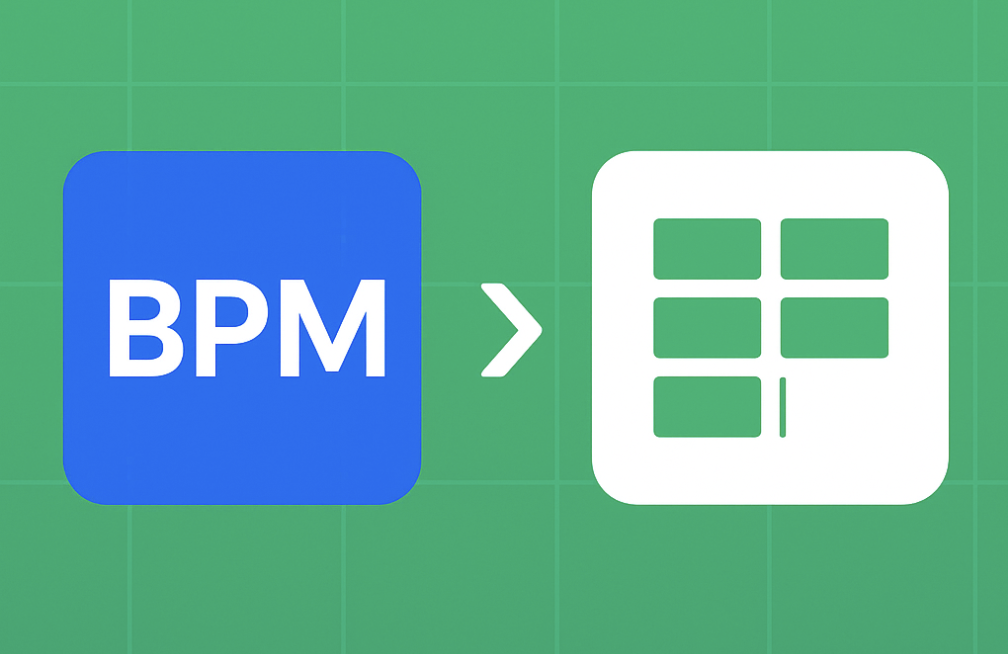2 min read
The Hidden Power of Workflow in Truss Manufacturing
Winning a truss manufacturing bid is just the beginning. The real challenge is managing the complex workflow from customer inquiry to delivered...
2 min read
 Ben Truman
:
Tue, Jul 15, 2025
Ben Truman
:
Tue, Jul 15, 2025

Managing business processes through spreadsheets is a common practice, but it's fundamentally flawed for complex organizational workflows. While Excel and Google Sheets work well for data analysis and simple tracking, they fall short when it comes to managing end-to-end business processes. Business Process Management (BPM) software transforms how organizations handle their operations by addressing the core limitations of spreadsheet-based process management.
Spreadsheets: Don't assign accountability. Tasks exist in a void where no one knows who's responsible for what at each stage, leading to confusion and dropped tasks.
BPM Software: Lets you define exactly who's responsible for what at every stage. Tasks are automatically assigned to specific users or roles, ensuring accountability and preventing work from falling through the cracks.
Impact: Eliminates confusion about ownership and ensures every task has a clear owner.
Spreadsheets: Updates are manual and often outdated. Team members work with different versions, and getting current status requires chasing down information from multiple people.
BPM Software: Provides live status updates so everyone knows where a job stands without chasing info. All stakeholders see the same real-time information about process progress and current task owners.
Impact: Instant visibility eliminates status meetings and constant follow-up emails.
Spreadsheets: Are flexible—but messy. Processes vary between users, steps get skipped, and there's no enforcement of proper procedures, leading to inconsistent results.
BPM Software: Creates repeatable, structured processes with built-in logic. Every process instance follows the same path, with conditional routing and validation rules that reduce errors and improve consistency.
Impact: Standardized execution ensures quality and predictable outcomes every time.
Spreadsheets: Require manual coordination between team members. Someone must remember to notify the next person, update status, and move work forward. Spreadsheets can't do that without custom code or external tools.
BPM Software: Can trigger actions when a stage is completed—like notifying the next team or generating a report. Handoffs happen automatically based on predefined rules, ensuring smooth process flow.
Impact: Eliminates manual coordination and ensures work moves forward automatically.
Spreadsheets: You can't track bottlenecks or time-in-stage with a static spreadsheet. Performance analysis requires manual compilation of data from multiple sources.
BPM Software: Collects data by default, giving you valuable insights into efficiency and process health. Track cycle times, identify bottlenecks, measure performance, and optimize based on real data.
Impact: Data-driven process improvement instead of guesswork and assumptions.
Organizations that transition from spreadsheet-based process management to BPM software typically see immediate improvements in efficiency, accuracy, and team coordination. The investment pays for itself through reduced manual effort, faster processing times, and improved business outcomes.
Get a free process audit from a process expert at Cadynce. We’ll walk through your current quote-to-completion process step by step to understand where your process might be broken. Schedule your free audit here!
Take our quick quiz to find out if your processes need rescuing.
Take the Quiz – Take 5 minutes to see where you stand. (Click here)

2 min read
Winning a truss manufacturing bid is just the beginning. The real challenge is managing the complex workflow from customer inquiry to delivered...

Every Christmas Eve, Santa Claus accomplishes what seems like an impossible logistical feat: delivering millions of presents to children around the...

In the competitive landscape of modern business, staying ahead of the curve isn’t just an aspiration; it’s a necessity. That’s where Business...